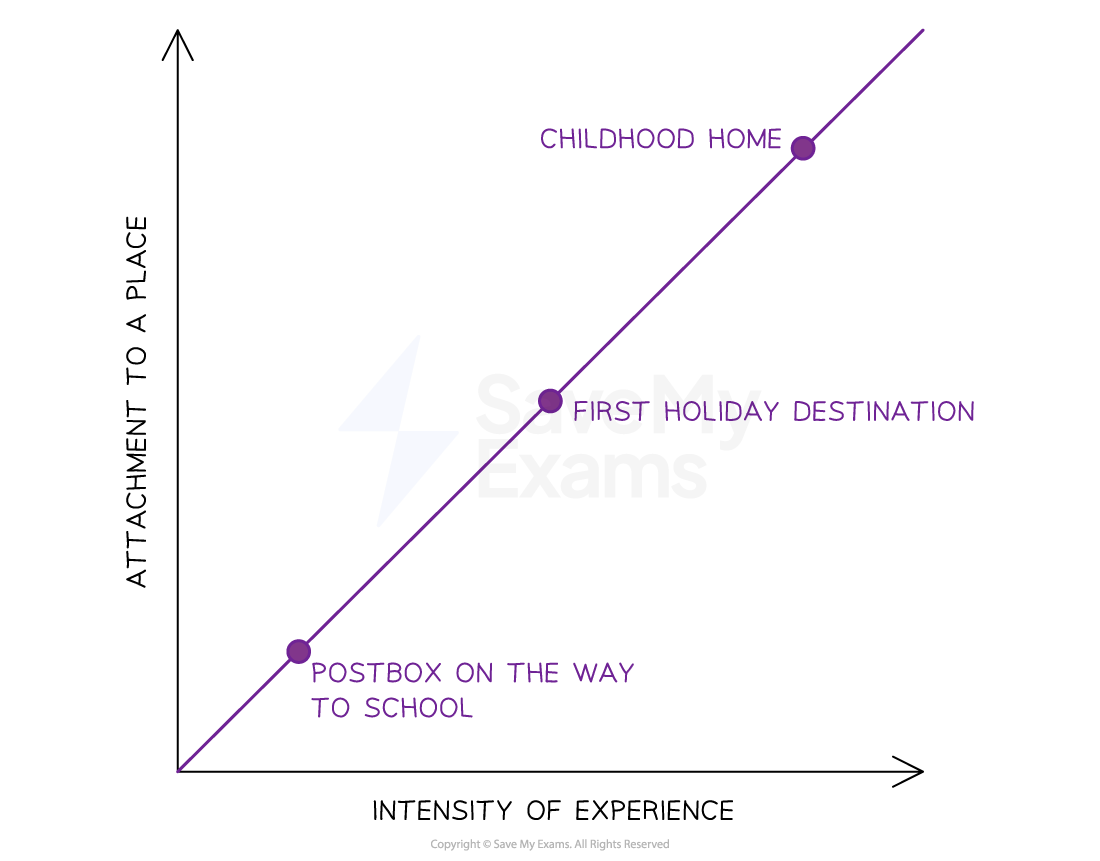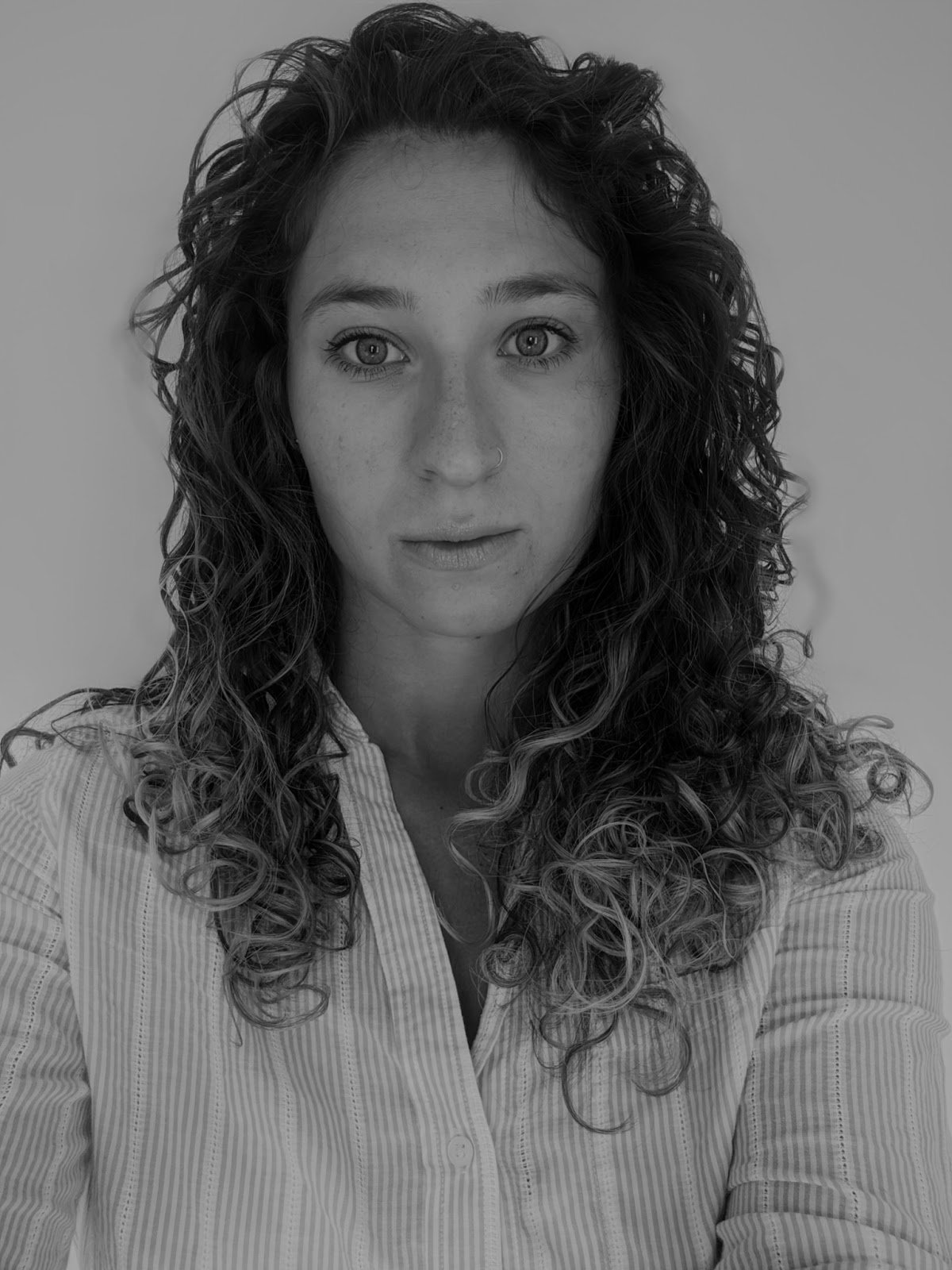Meaning of Place
- Geographers define place as space plus meaning.
- Consider your school sports hall, it is a space that can be many places depending on the meaning it is given. It can be a sports final venue, exam hall, or party location
- People form attachments to places through lived experience
- Attachments can be negative - topophobia - or positive - topophilia - and are determined by the strength of the experience
- Yi-Fu Tuan proposed that our attachment, experience and understanding of places increase as we age

Relationship between attachment to a place and intensity of experience
- People can also form attachments to places through perception gained from media or hearing the experiences of others
- This engagement with places comes from books, television, film and the personal history of others
- It is possible to be attached to a place you have never been to
- The combination of lived experience and perception of place is called ‘place perspective’
Identity and place
- Our attachment to a place and the sense of meaning that we attribute to it may become a significant part of our identity:
- Localism: Is a preference for the place closest to you
- Regionalism: Identification with a distinct region - a person may describe themselves as 'Cornish' rather than 'English'
- Nationalism: Often described as patriotism
- Globalism: People who refer to themselves as global citizens


